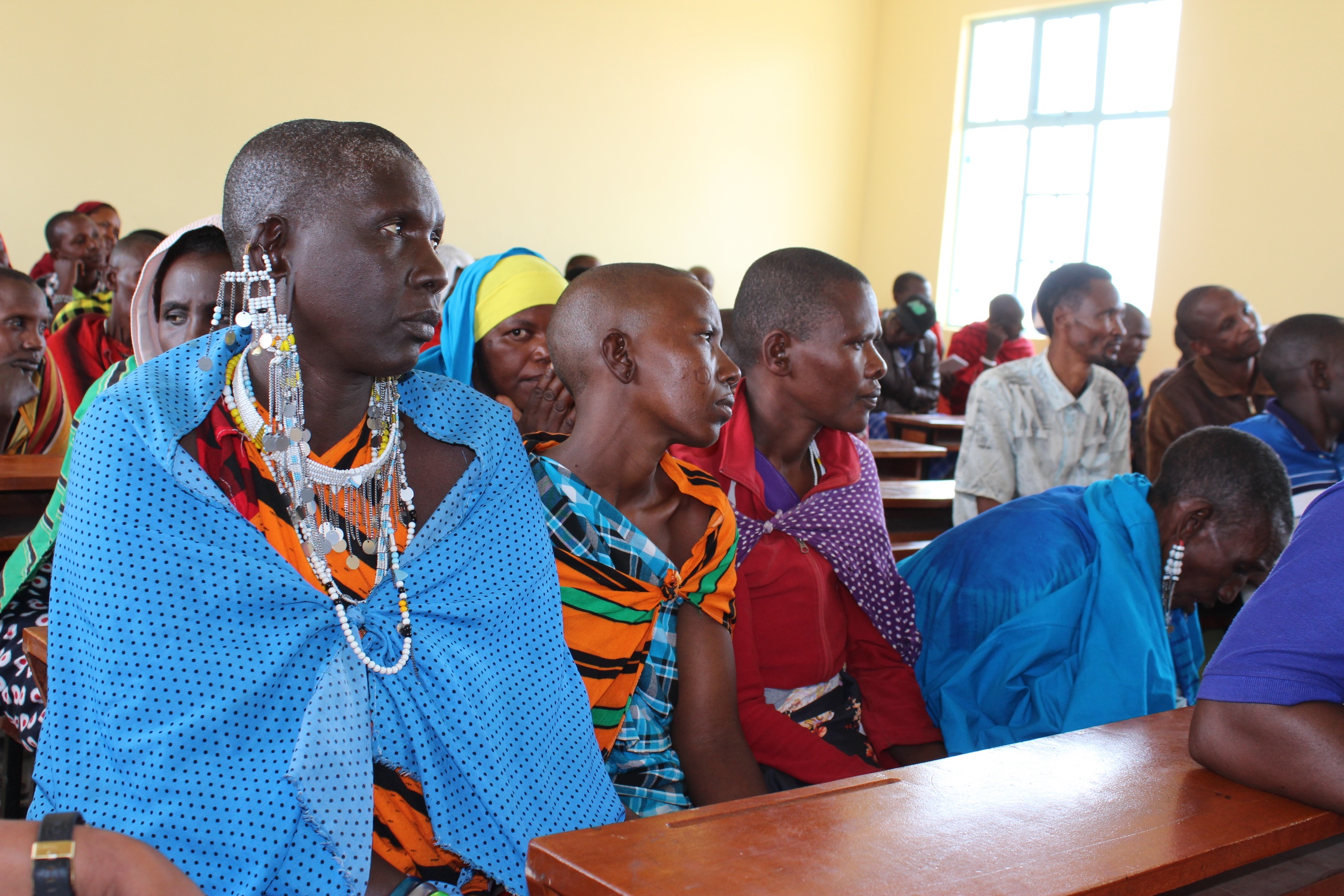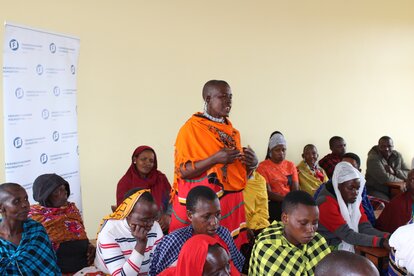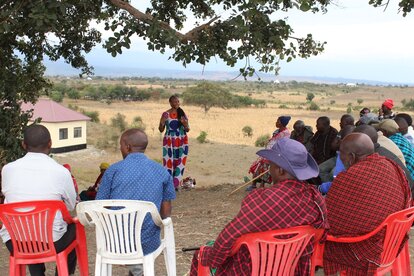Tanzania
Save the girls

Massai women and men in conversation on genital mutilations
© John Mwandri, FNFChristmas is a time of great danger for Nanyori. The nine-year-old Maasai girl lives in a village at the foot of Mount Kilimanjaro. When the schools close for Christmas, Nanyori is to be circumcised. That is the tradition.
The Maasai practise a particularly brutal form of genital mutilation known as clitoridectomy. This involves the partial or complete removal of the clitoris and sometimes the adjacent labia, without anaesthetic or sterilization of the knives. In Maasai culture, circumcision marks the entry into adulthood, the transition of a girl into womanhood. However, cutting off the clitoris is also intended to reduce the sexual desire of young women, supposedly so that they do not enter into premarital relationships or commit adultery later on.
The immediate consequences of clitoridectomy are serious. It often leads to heavy, sometimes fatal bleeding and infections. Women also suffer in the long term. Many suffer from chronic inflammation and unbearable pain during sexual intercourse due to the scars. Serious complications regularly occur during childbirth.

Esther Joseph in conversation with Massai in Kilimanjaro, Tanzania
© John Mwandri, FNFIn Tanzania and Kenya, where the Maasai live, the circumcision of girls has been banned for many years. Despite this, almost 80 percent of girls still suffer this cruel fate.
However, Nanyori could be in luck. Her village is taking part in a project run by KWIECO, an NGO that supports women in the Kilimanjaro region. With funding from the Friedrich Naumann Foundation (FNF), KWIECO trainers have been working in the Maasai villages since 2020. Initially, the focus was on informing the women about their rights - for example, in conflicts over land rights and inheritance, but also in cases of sexualized violence. Over the years, the necessary trust was built up to openly address the issue of female genital mutilation (FGM) for the first time in 2023.
To the surprise of even the Kilimanjaro regional government, traditional leaders of the Maasai community also attended the first workshop in March. For four days, they heard about the plights of the affected women and discussed the possible consequences for their villages. Under Tanzanian law, women affected by genital mutilation can sue those responsible many years later. Tribal leaders were not aware of this risk until then. To protect their communities, something has to change, that was clear at the end of the four days.

Community Engagement to educate and win over
© John Mwandri, FNFHowever, to end the practice of genital mutilation, even the power of traditional leaders is not enough. Mainly old, influential women keep the cruel tradition alive in the villages. As circumcisers, they enjoy power and prestige. They also earn a living by mutilating girls. These women must be won over for the change that was the message of the tribal leaders after further internal consultations.
Thus, further workshops were held between July and September 2023, in which only a total of 85 circumcisers participated. KWIECO and FNF had prepared these workshops well. In addition to discussions on the topic, there were trainings and support services to help the women start their own small businesses and thus develop alternative sources of income.
In fact, the women participants in the workshop succeeded in making the change, just like the tribal leaders before. They will no longer carry out circumcisions in the future. Assuming cautiously that each circumciser only carries out fifteen circumcisions a year, this decision by the 85 women will save more than 1,200 girls from a cruel fate this year alone.
This success is the result of a project with staying power. It is worth building on. There are still many Maasai villages that have not been reached by KWIECO and where thousands of girls are mutilated during the school vacations at Christmas time. We should not abandon these girls.
